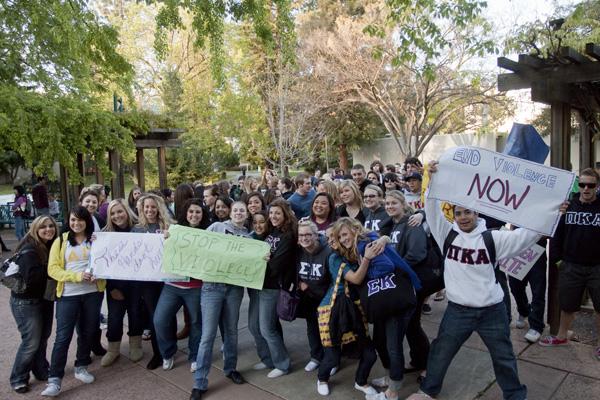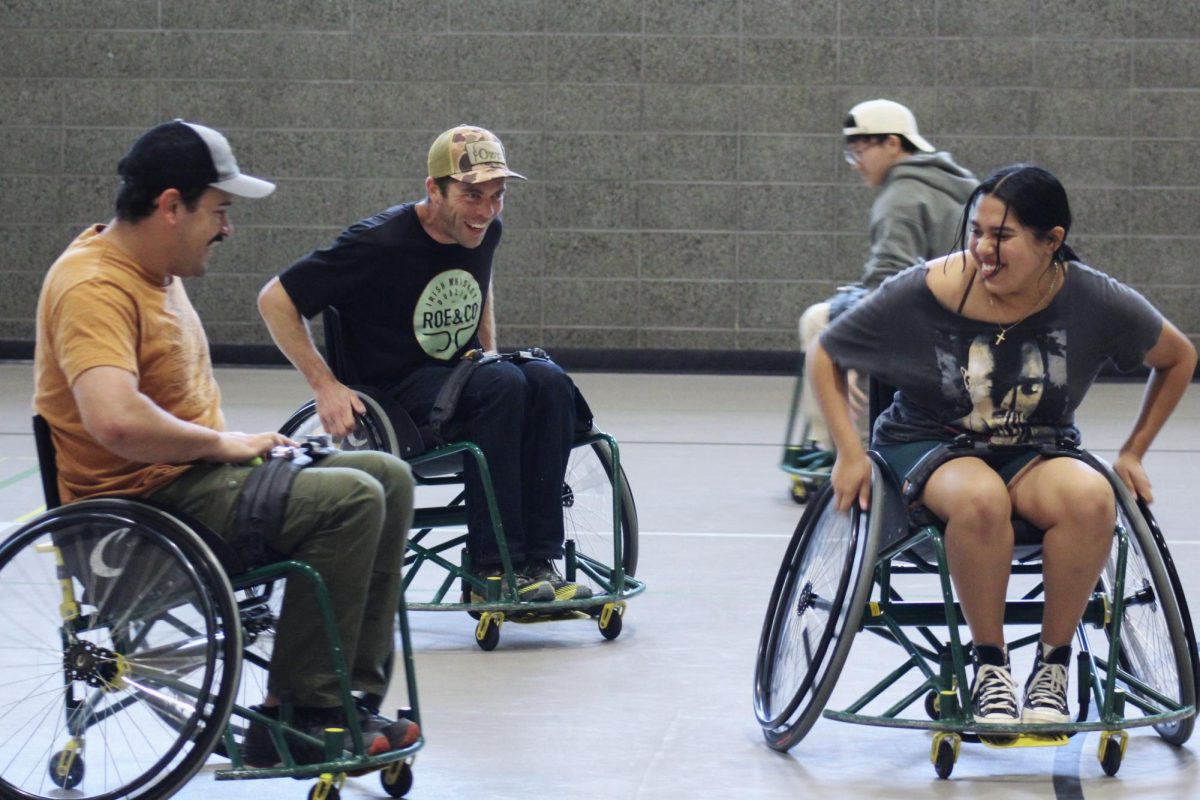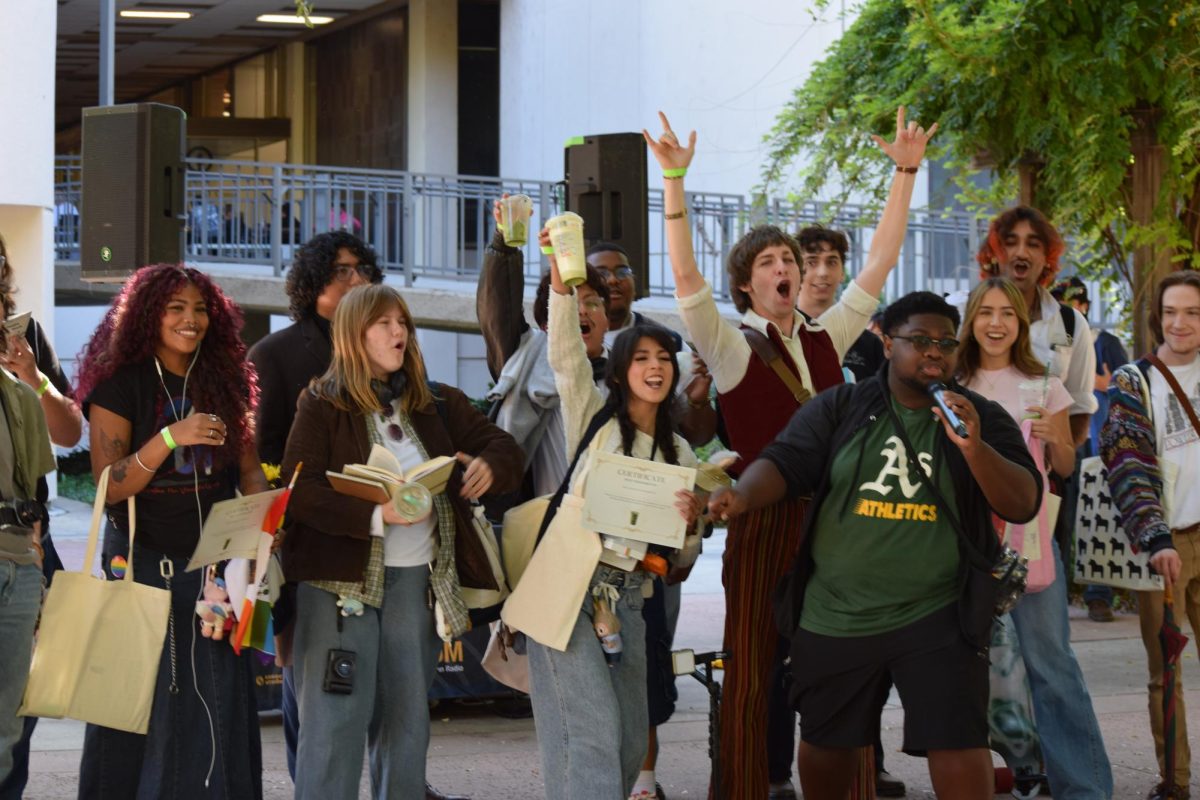Take back the night, spreading awareness against sexual assault

sexual assault:The Greek sororities and fraternities came to the ninth annual Sexual Assault Awareness month to show they are more than parties; they are also social responsible.:Julie Keefer – State Hornet
April 6, 2010
One out of every five women who are college students can expect to get sexually assaulted during their college career, said Lynzi Brent, co-coordinator of the Women’s Resource Center.Even though Sacramento State is a relatively safe campus, the campus community is directly affected by sexual assault.”Sexual assault is not necessarily happening on campus, but rather when (students) leave and go home,” Brent said. “We are affected because it is happening to our students and they are bringing it back to campus with them.”Jessica Heskin, an advocate and educator for violence and sexual assault services at Sac State, said April is Sexual Assault Awareness Month. Heskin said this is Sac State’s ninth year of participating in sexual assault awareness month.”In prior years, Sac State didn’t have the programs available to properly participate in sexual assault awareness month,” Heskin said. “Now that we have staff devoted to violence against women, we are able to spread more knowledge on sexual assault and host certain events.”The purpose of Sexual Assault Awareness month, Brent said, is to show students that even though they may not see abuse does not mean it is not happening.During this month, she said, different on-campus organizations are working together to spread awareness of sexual assault throughout the campus community.
Two organizations involved are the Women’s Resource Center and Gamma, a Greek organization that hopes to counter the negative stereotypes involving alcohol in the Greek system at Sac State. These organizations will spread awareness through a series of events throughout April, Heskin said.”This is a month where we bring the issue of sexual violence to a social public awareness,” Heskin said. “We are trying to educate the campus community that sexual assault can happen anywhere.”The first event was held Monday night in the Library Quad, where sexual assault victims spoke out about their struggles and walked the campus with supporters to “Take Back the Night.””This was a walk to bring about awareness that women simply cannot walk alone at night for fear of being sexually assaulted,” said Jennifer Knox, senior health and science major. “This is a way for them to show that women should have the freedom to walk alone at any time.”To symbolize that women are the direct victims of not being able to walk alone at night, women lead the march, Knox said.
Men were welcome to join, but walked in the back as a support system for the women, Heskin said.One of the benefits of attending this march, Knox said, was to hear from the victims.”Sexual assault is something that is so hard to overcome and for the speakers to come and really tell their story is so brave and courageous,” Knox said.Heskin said because the victims have gone through such horrendous pain, many people think hearing their stories will be depressing.”You get to see the people who are victims of these crimes and see how well they are functioning with life after such a terrible experience,” Heskin said. “This is a real testament for human strength.”Rather than having a negative atmosphere, Heskin said this event is more of a celebratory cause that highlights the strength of the victims. “This has been celebration of the victims for having such great strength,” Heskin said. “By hosting this event, we are also saying to the campus community, on a public level, that we are and won’t tolerate sexual assault.”The second event, “Walk a Mile in Her Shoes,” was hosted on Tuesday and also held in the Library Quad.
This was an event where men walk around the campus in women’s high-heeled shoes, Knox said. Knox said all types of men were invited to support women and see what it is like to literally walk in their shoes. Heskin said it is a fun event that follows the saying, “you don’t know someone until you’ve walked a mile in their shoes.””Having the men walk around in heels shows how hard it really is to walk in a woman’s shoes,” Heskin said. “There is just something about seeing 50 men dressed in normal attire and walking around in heels, it’s a sight to see.”
There will be an event at 7 p.m. today in the University Union’s Hinde Auditorium and will focus on “not leaving any woman behind in the Hinde.” The event will focus on discussing “it” – all emotions and experiences revolving around sexual assault.The final event, a sexual assault workshop, will be held from 1 to 2 p.m. on April 23 in the Union’s Forest Suite.
This workshop, Knox said, is free and open to the public.For this event, peer health educators from the health center will be joining the Women’s Resource Center to inform the campus community on sexual assault in a more casual manner, Knox said.”We hope to educate students on sexual assault and provide some self-defense tips,” Knox said.Besides educating the community on sexual assault, Heskin said the goal of this month is to also spread knowledge of sexual consent.”Consent is when someone is 100 percent sure that the other person wants what they want sexually,” Heskin said.The main problem with consent, she said, is that people do not make it clear of what they want before having sex; oftentimes, people do not know they are committing a sexual assault crime. “You’re participating in the most intimate thing that two humans can do, having a discussion beforehand is nothing compared to sex,” Heskin said. “Making sure the other person is completely sure of their actions is a complete necessity.”Heskin said that alcohol plays a large role in sexual assault. She said when alcohol is involved, one should not partake in sexual activities, she said.”When intoxicated, you are less likely to use birth control methods correctly,” Heskin said. “Not only does this lead to unplanned pregnancy, but there is there is a higher rate of the spreading of sexually transmitted infections and diseases.”Since alcohol inhibits good reasoning, Heskin said the main cause of sexual assault is consent issues.”If the other person is plastered, how do you know the other person wants what you want,” Heskin said. “If you really think you and that person are hitting it off, call them when you’re both sober.”Since women are not the only people affected by sexual assault, Heskin said, this month should bring awareness to men as well.
Statistically speaking, she said, if one out of every five women are sexually assaulted, the men who care for them are affected as well.Mothers, daughters, nieces, girlfriends and classmates – all women have the chance of being sexually assaulted,” Heskin said. “Let’s get this campus aware and stop sexual assault from occurring.”
Erin Rogers can be reached at [email protected]




























































































































